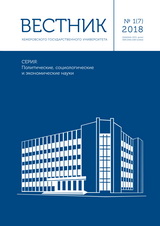The paper is focused on the paradigmatic basis incorporated in the Concept of the Spatial Development of Russia. In order to investigate the process of changing the spatial paradigms, the author performs a comparative analysis of the retrospective and perspective stages of spatial development from the standpoint of strategic vision, characteristics of paradigms of the territorial use and types of spatial development. Characteristics of the horizontal-branch stage of development and those of the opportunistic-exhaustive approach to the use of territories are presented as exemplified by hydrocarbon resource development. The author defines the conditions that make it possible to form the strategic vision of the temporal development of a territory, i.e. influence of natural-geologic factors, manifestation of the law of diminishing returns, a strict orientation on economic values and the dominance of sectoral interests. Transition towards the paradigm of holistic and integrated development of territories is considered in the context of the evolution of value orientations, which constitute the axiological basis for social development concepts. Recommendations based on the current research include assessment of the territorial development using the inclusive growth criteria, apart from social, ecological and economic development criteria. As a goal, inclusiveness can be achieved by spatial organization based on the modern approaches, including social and communication ones. As a mean to solve regional problems, inclusiveness implies development of principles and mechanisms for residents and authorities of the resource territories to participate in decision-making regarding the territorial use.
paradigm, spatial organization of territory, resource regions, opportunistic-exhaustive development, verticallyintegrated development

















